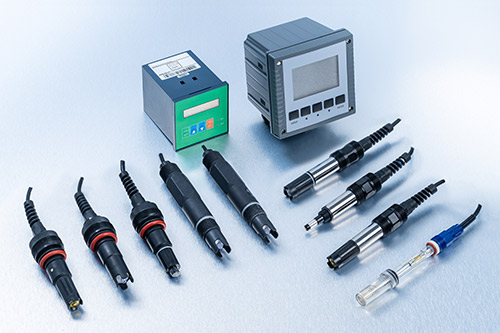The Future of Water Quality Sensor Technology | Explained!

Water quality sensor technology has come a long way in recent years, with new advancements and innovations constantly being developed. As the need for clean and safe water continues to grow, so too does the demand for more advanced and reliable water quality sensors. Here, we will explore the future of water quality sensor technology and how it will impact the way we monitor and manage our water resources.
Use of Nanotechnology
One of the most exciting developments in water quality sensor technology is the use of nanotechnology. Nanosensors are incredibly small and precise, allowing for real-time monitoring of even the tiniest fluctuations in water quality. These sensors can detect a wide range of contaminants, including heavy metals, pesticides, and pharmaceuticals, with high sensitivity and accuracy. Nanosensors could revolutionize the way we monitor and manage water quality, making it easier and more efficient to detect and address potential issues.
Use of Artificial Intelligence
Another area of development in water quality sensor technology is the use of artificial intelligence (AI) and machine learning. AI can help analyze large amounts of water quality data, identify patterns and trends, and provide insights that would be difficult for humans to detect.
Machine learning algorithms can be trained to recognize specific contaminants or water quality indicators, making it easier to quickly identify potential issues and take action. This could help water managers and public health officials to more effectively protect public health and prevent contamination events.
Wireless Connectivity
Wireless connectivity is also a rapidly developing area of water quality sensor technology. Wireless sensors can transmit real-time data to a centralized system, making it easier to monitor water quality over a large area. This technology can also be used to create a network of sensors that can work together to provide a comprehensive picture of water quality in a particular area. This can help water managers quickly respond to changes in water quality and prevent contamination events.
Advances in Battery Technology
Advances in battery technology are also making it possible to create more efficient and longer-lasting water quality sensors. This is especially important for sensors that are used in remote or hard-to-reach areas, where regular maintenance or replacement may be difficult. Longer-lasting batteries can also make it easier to deploy sensors over a large area, providing more comprehensive data on water quality.
Integration of Multiple Water Quality Sensors
The integration of multiple water quality sensors is another exciting development in water quality sensor technology. Multiparameter sensors can measure multiple water quality indicators, such as pH, dissolved oxygen, temperature, and turbidity, all at once. This can provide a more comprehensive picture of water quality and help to identify potential issues more quickly. Additionally, the integration of different types of sensors, such as chemical and biological sensors, can provide more accurate and reliable data on water quality.
Conclusion
The future of water quality sensor technology is exciting and full of possibilities. Nanosensors, AI, wireless connectivity, longer-lasting batteries, and multiparameter sensors are just a few of the advancements that are shaping the way we monitor and manage our water resources. With these developments, it will be possible to quickly detect and respond to potential contamination events, prevent waterborne illnesses, and ensure that our water resources remain clean and safe for generations to come.
Post Your Ad Here
Comments